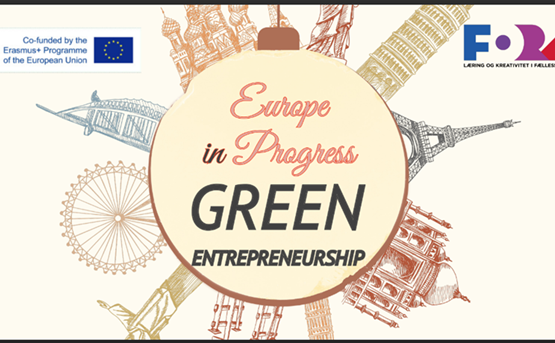Du har hold i kurven
- x ()
Her finder du vores aktuelle internationale projekter:
Game On: Gaming is a fundamental learning method for the youngest generations, since we learn by playing different games in the
first few years of our lives. Today different gaming methods in learning (gamification or game-based learning) are getting
more and more popular, as they help young people to become more engaged therefore learn easier. In the digital era,
there is even more possibilities to use games to facilitate and enhance the educational experience of young people.
According to the Interactive Software Federation of Europe’s (ISFE) report, which examined the key European video
game markets in 2018, 54% of the population aged 6-64 play video games, with 77% playing at least one hour a week.
Nearly half of the players are female (46%) while the number of children and young people playing are the highest with
84% between the age of 11-14, 74% between the age of 15-24 and 67% between the age of 25-34. The latest is the
strongest growing age group with an 8% growth in 2018. Esports are becoming so popular that in addition to players,
30% of the internet users now watch live streams of people playing video games, according to the research firm
GlobalWebIndex. People enjoy playing video games not only because it is fun, but it is also challenging and there is a
learning potential in it. Unfortunately, in most of the times the learning is not conscious, people do not realise and reflect
upon the knowledge and skills they have learned while playing a video game. Youth workers with the appropriate tools,
could help young people, who are already playing video games to learn useful skills (Hellblade deals with mental illness,
Assassin’s Creed Odyssey teaches about ancient Egypt, Overcooked is all about teamwork, Warcraft teaches strategy,
Minecraft is often used as an introduction to coding, English skills from most of the games etc) from video games. As
everything in life, video games can be constructive or destructive, depending on how they are used. A study about the
impact of video games on young people recommends, that youth workers should increase their understanding of the
video game world to utilize its potentials and get to know its risks. Ensuring that youth workers are familiar with the video
game world, and therefore able to connect with young people (even with the hard to reach ones) who play, youth workers
can also discuss young people’s gaming habits in an open and honest way and can address occurring negative
behaviours in due time. Based on the above-mentioned figures we can say that more and more people, even females are
playing video games, but there is an unused learning potential in it. The purpose of the proposed project is to take on
board young people's already existing interest in playing video games and transform it to planned learning, rather than
trying to encourage more people to engage in playing, since this is already happening.
Want to know more? Contact lindqvist@fora.dk
Europe in Progress:

